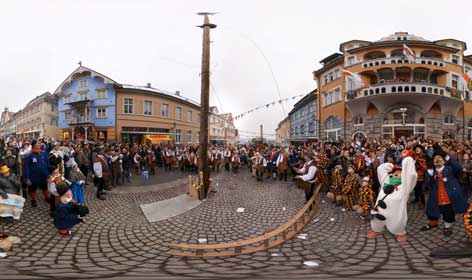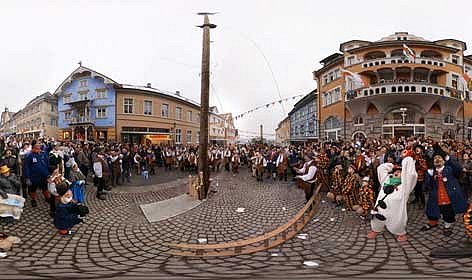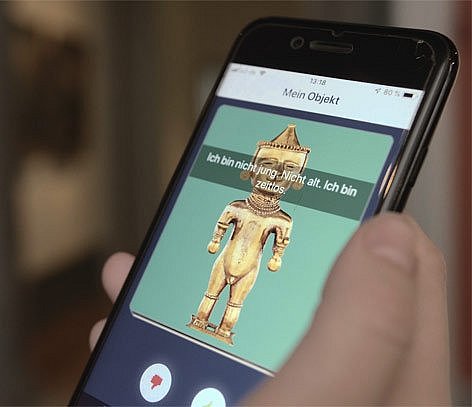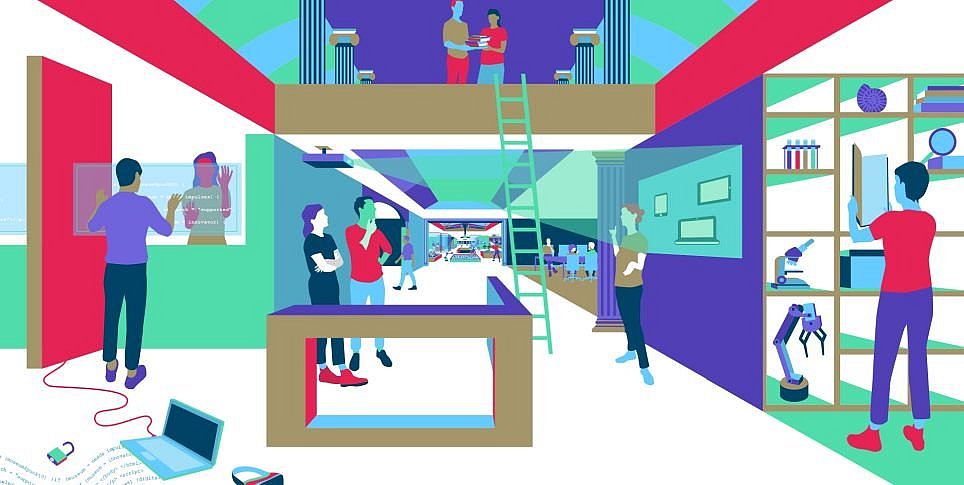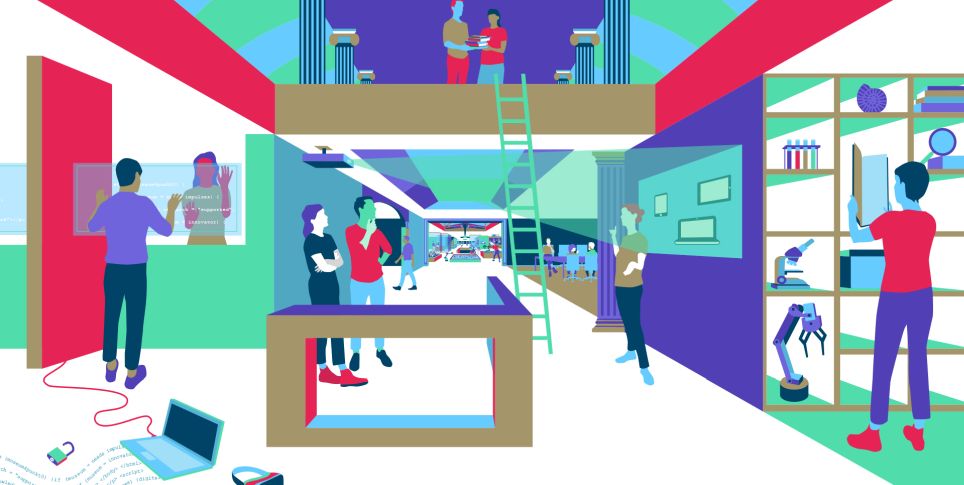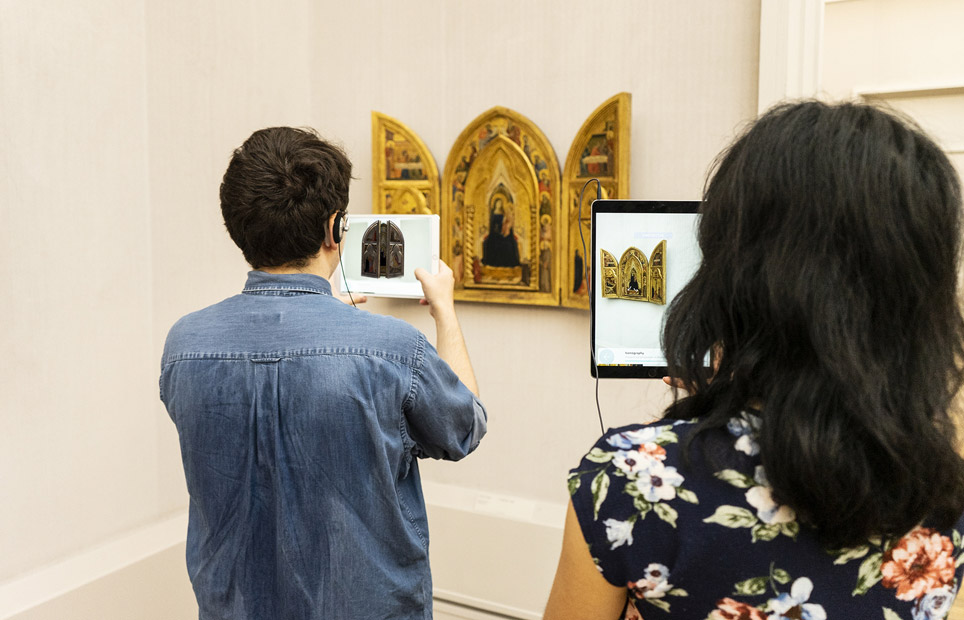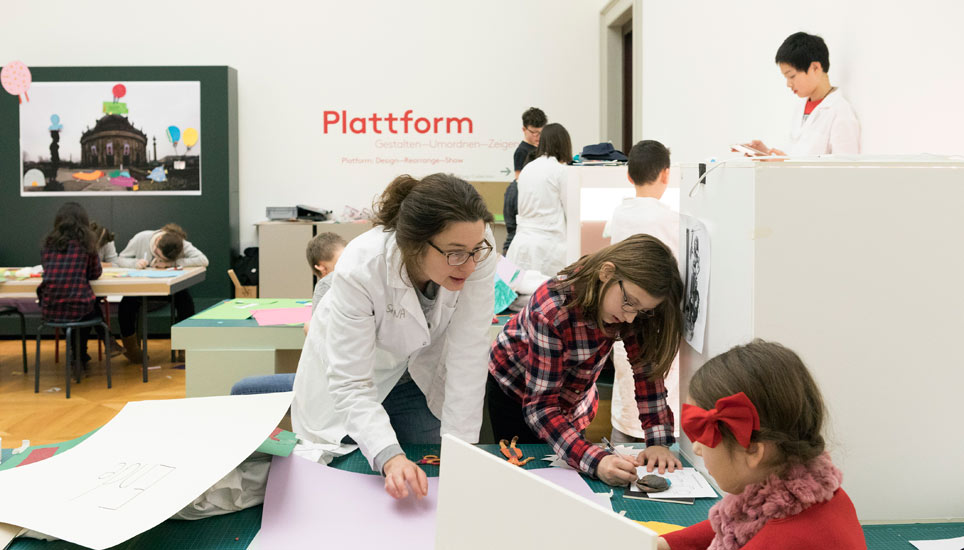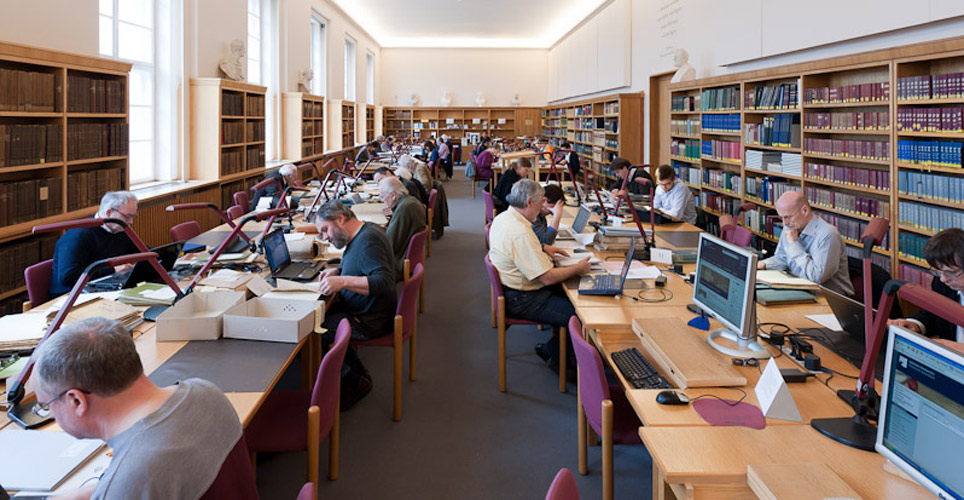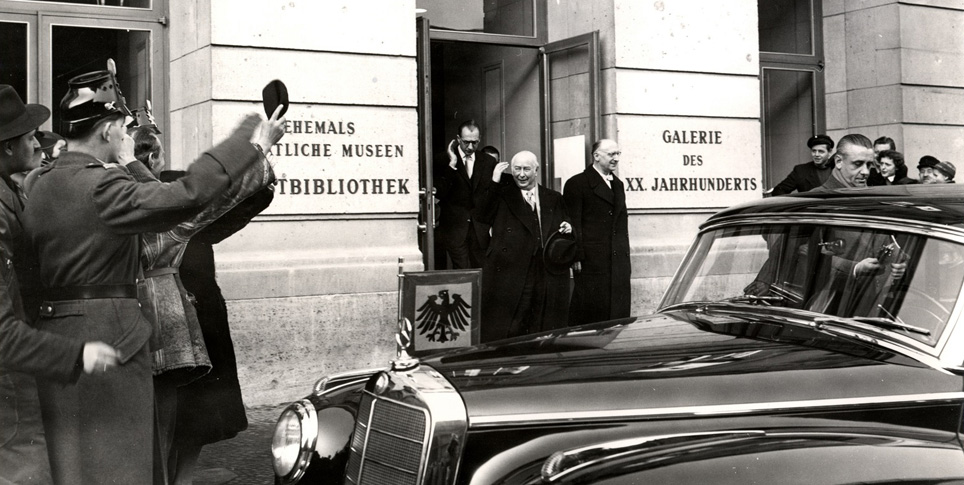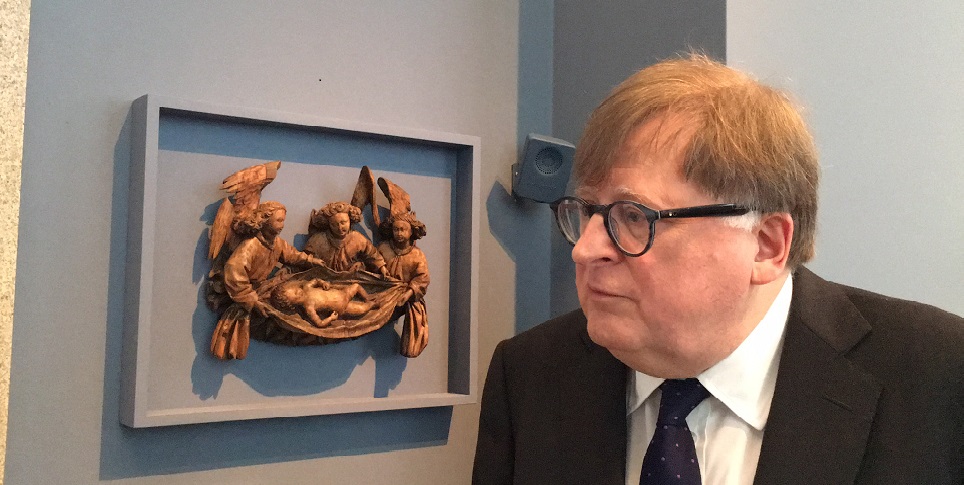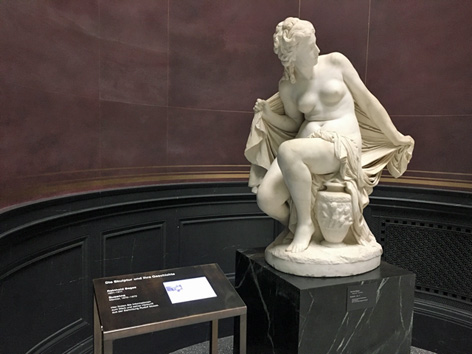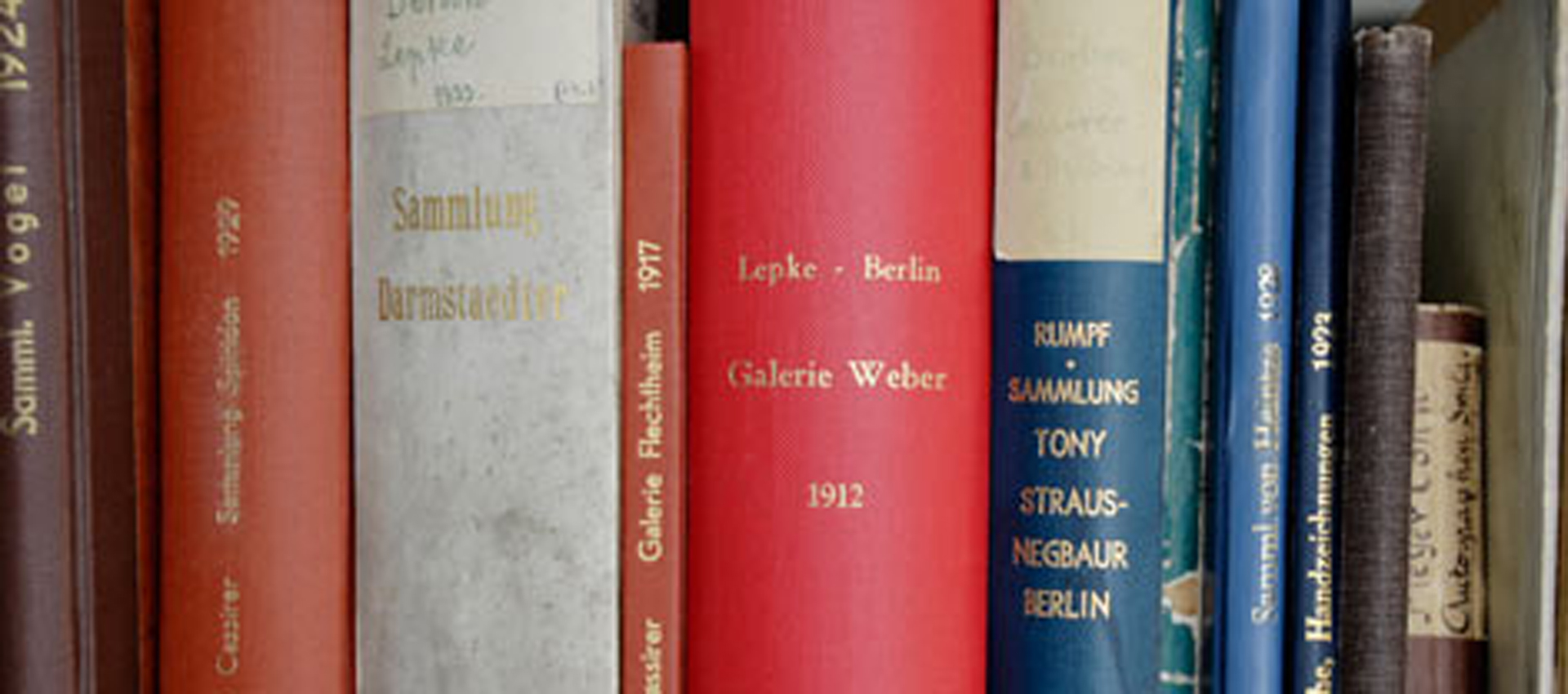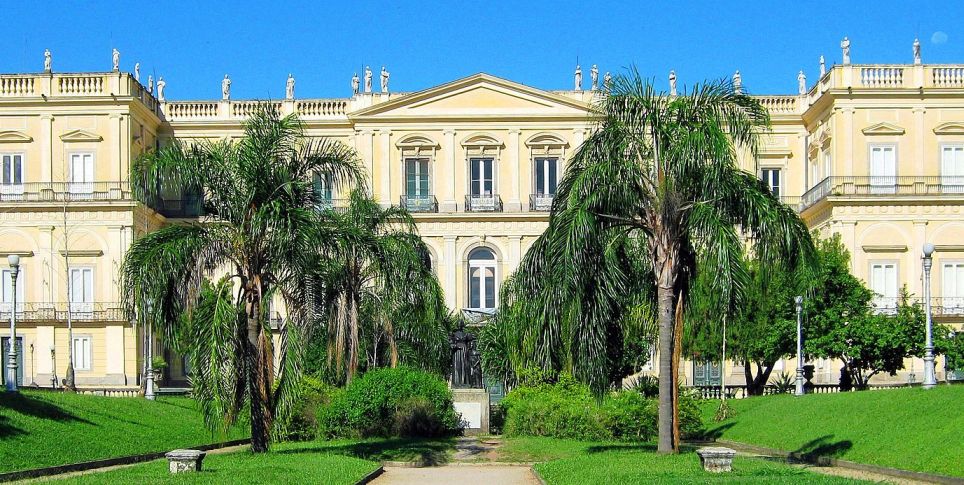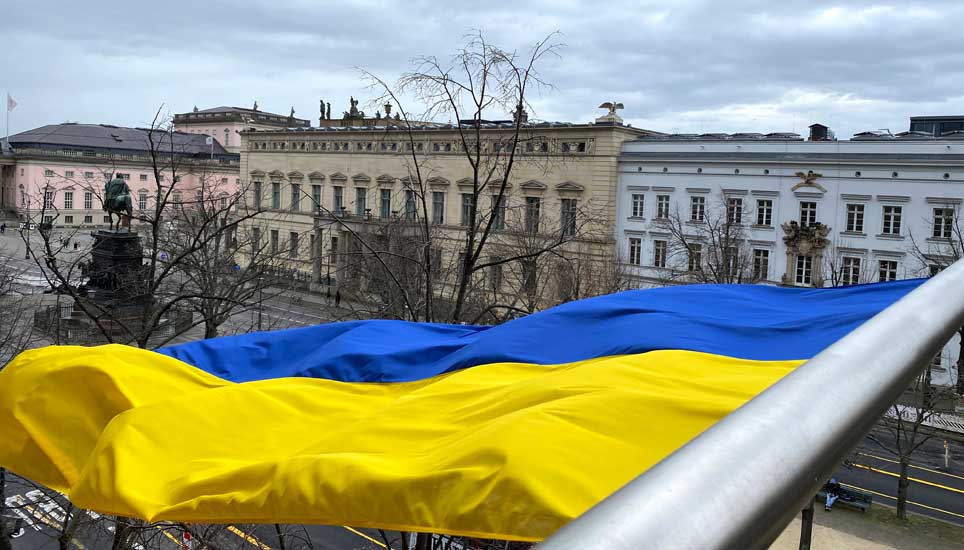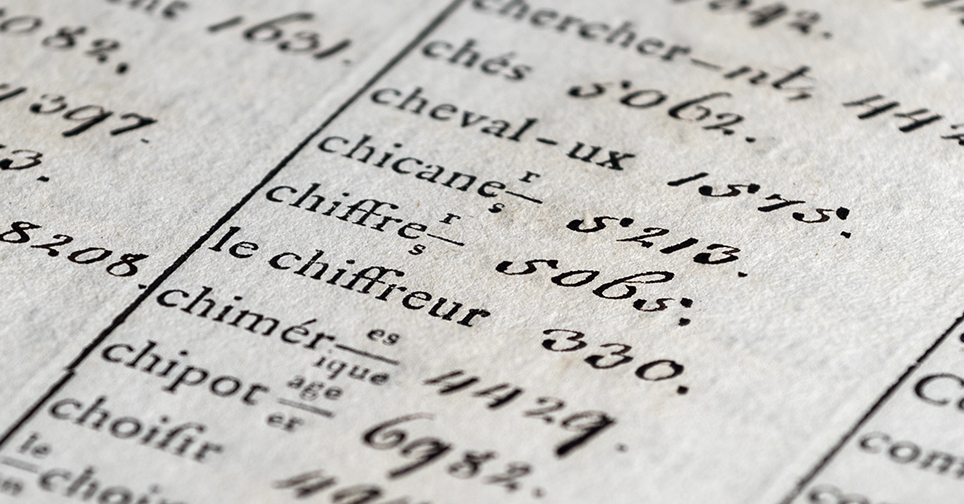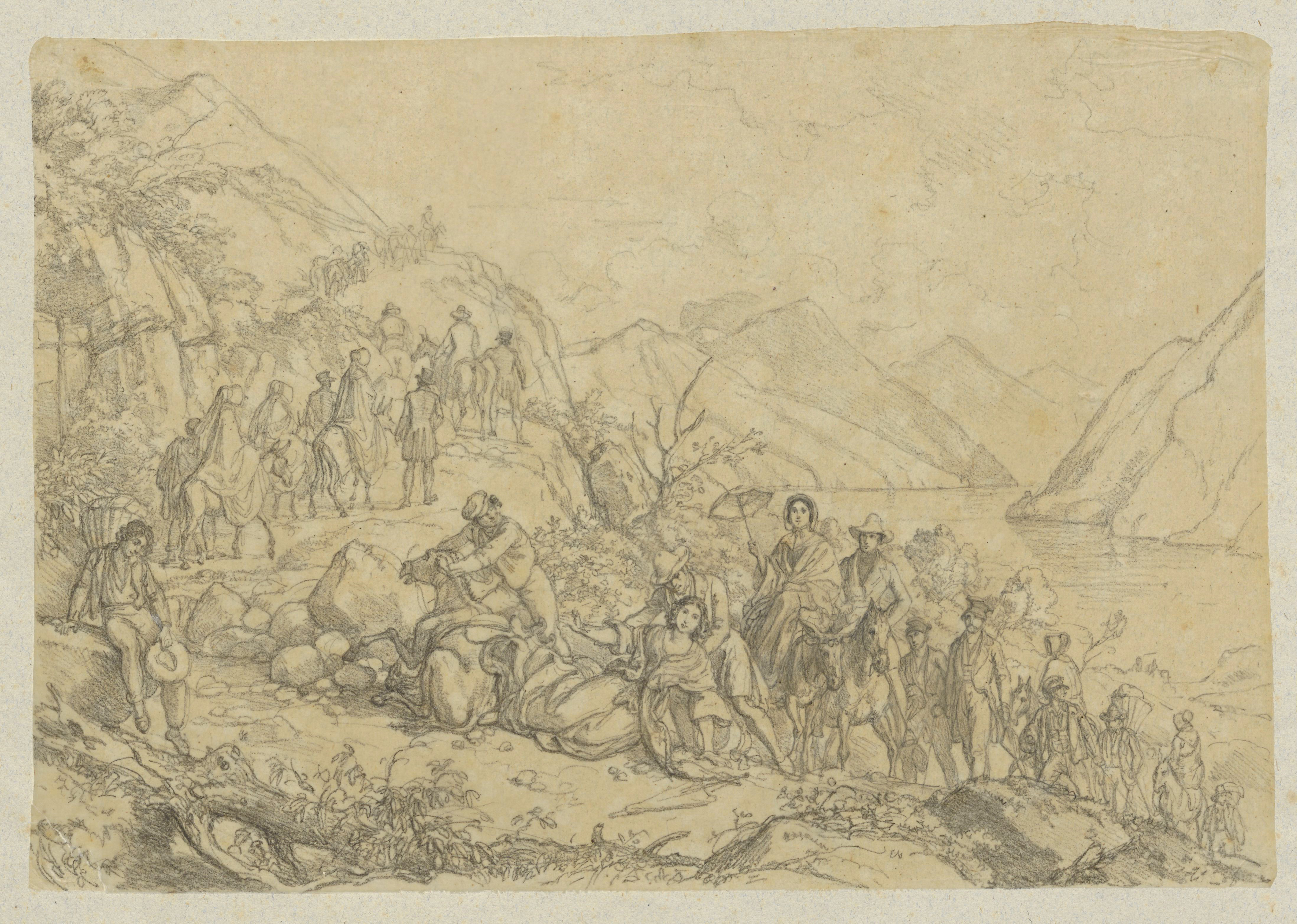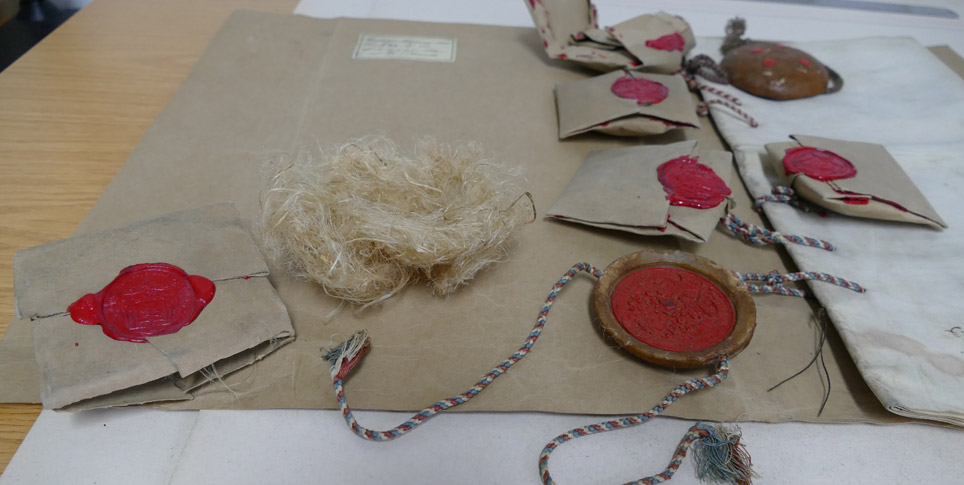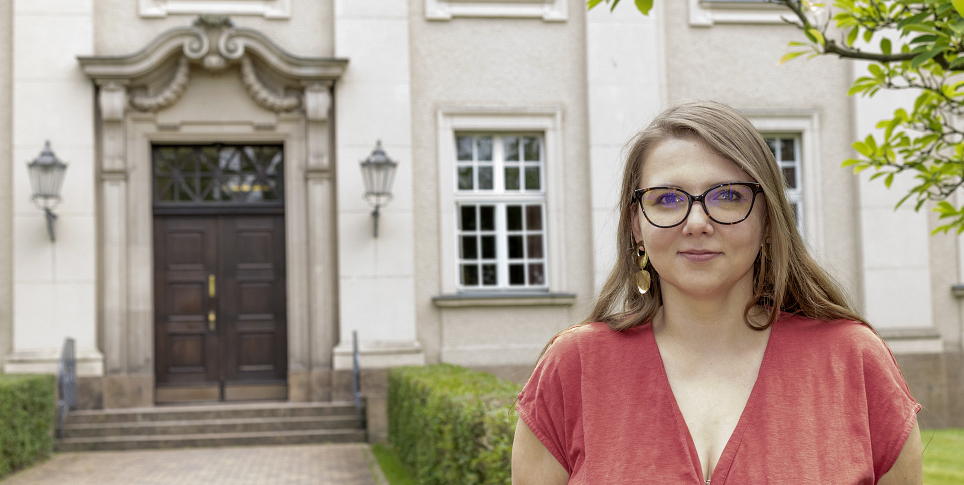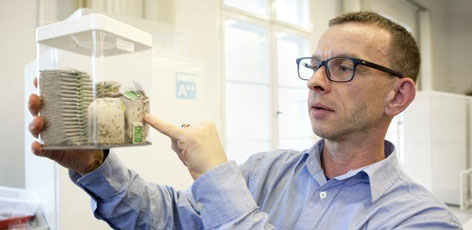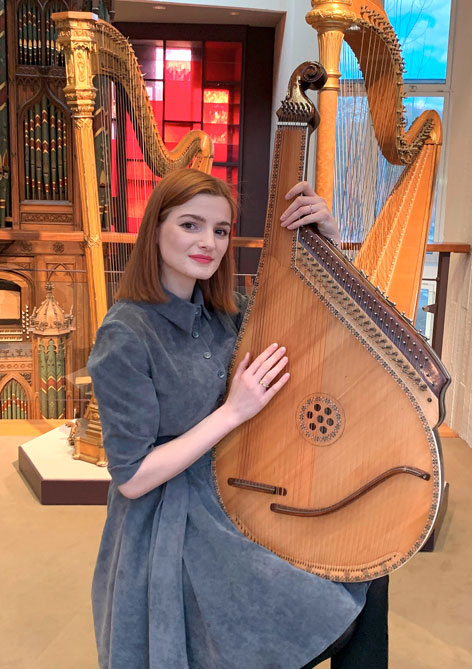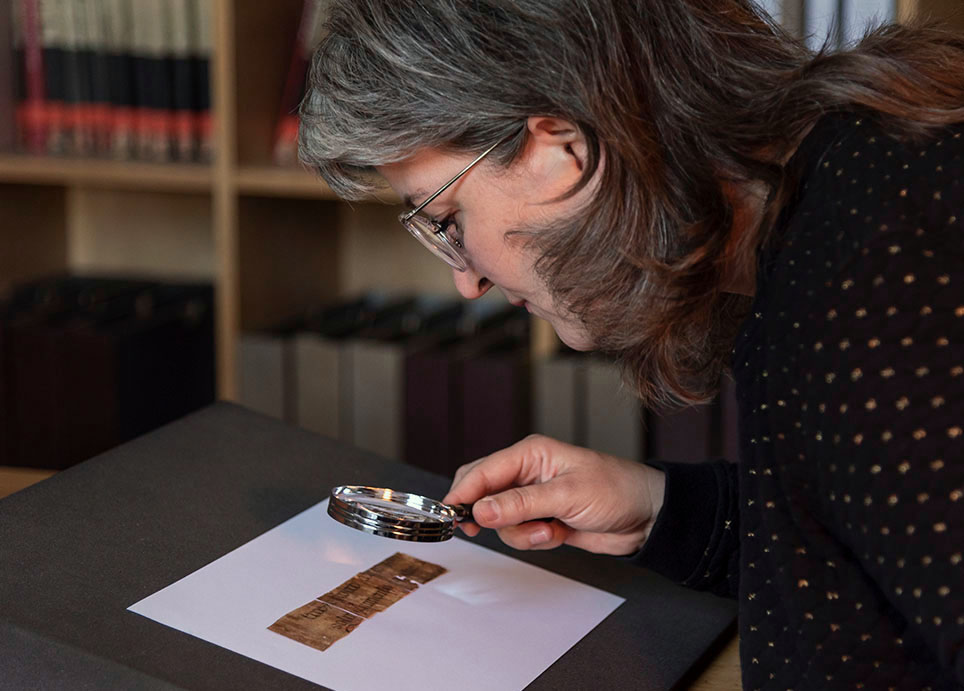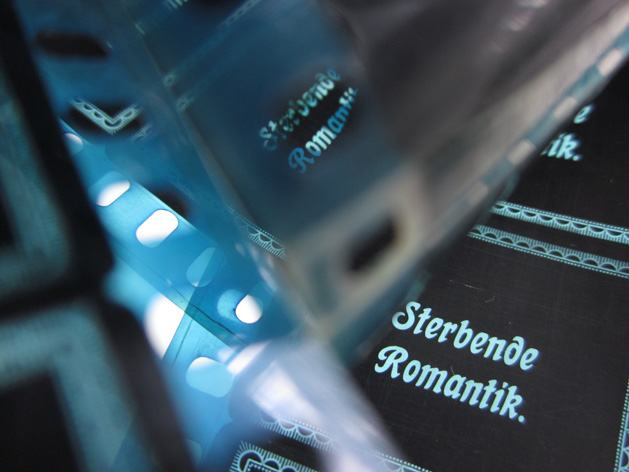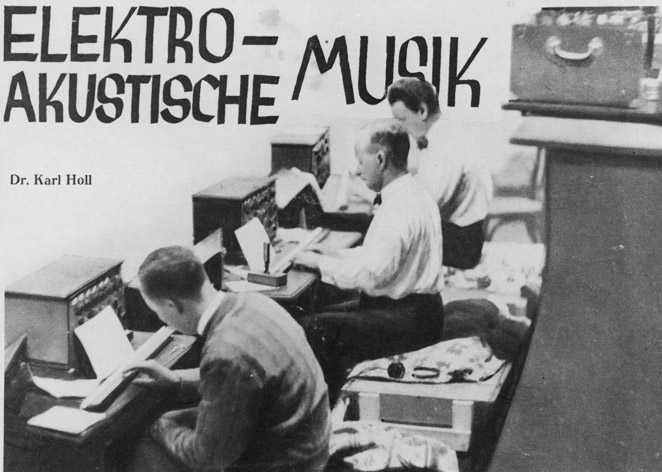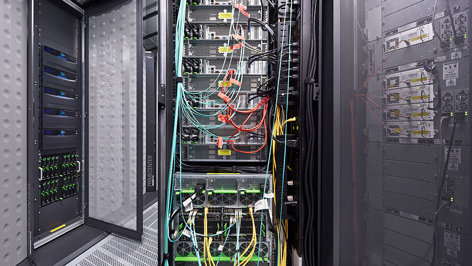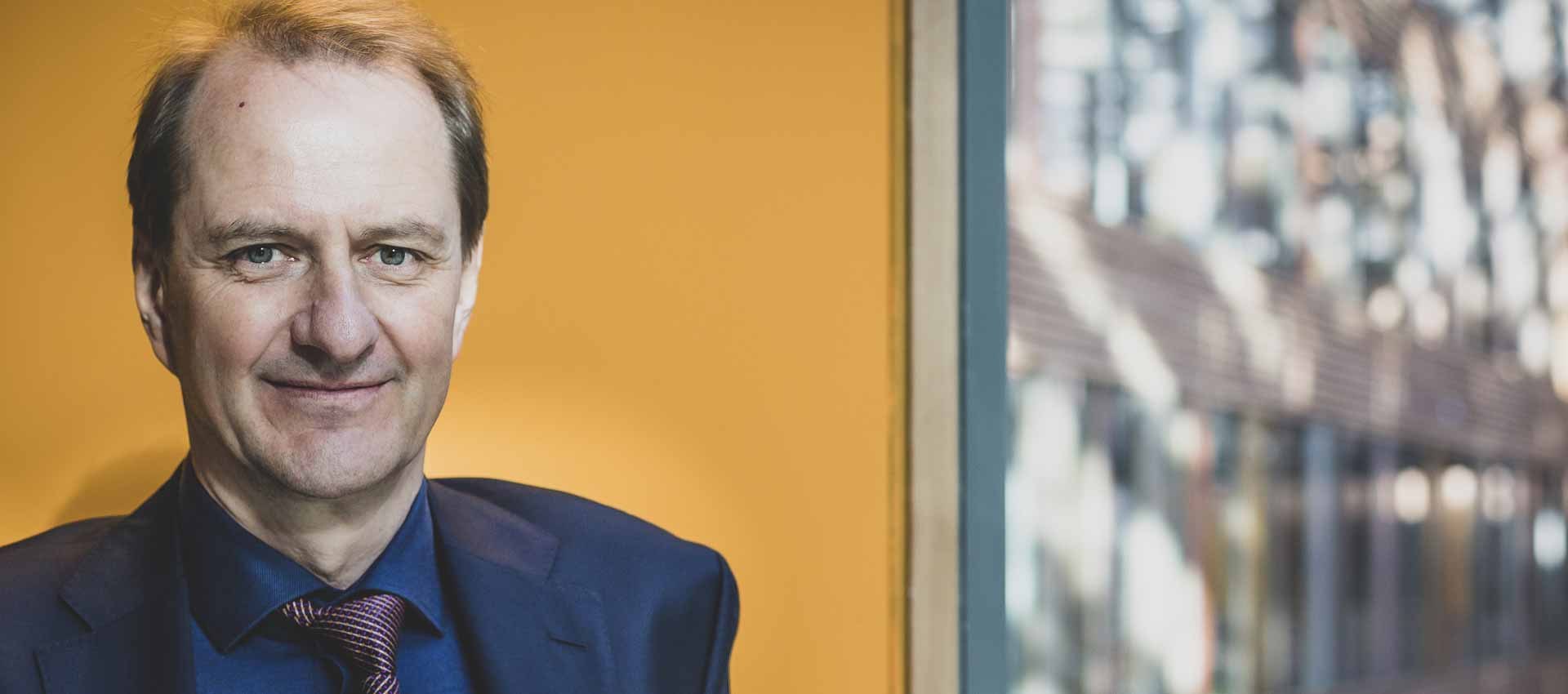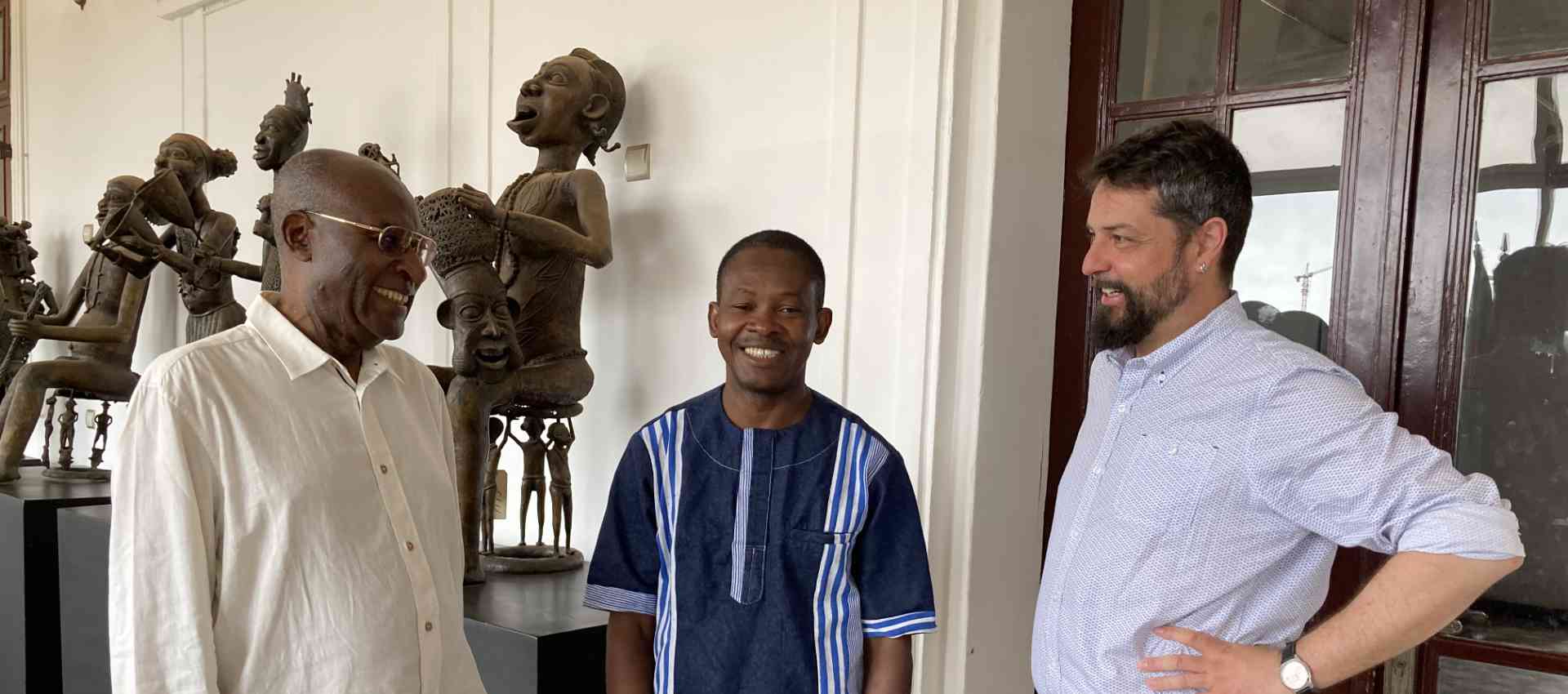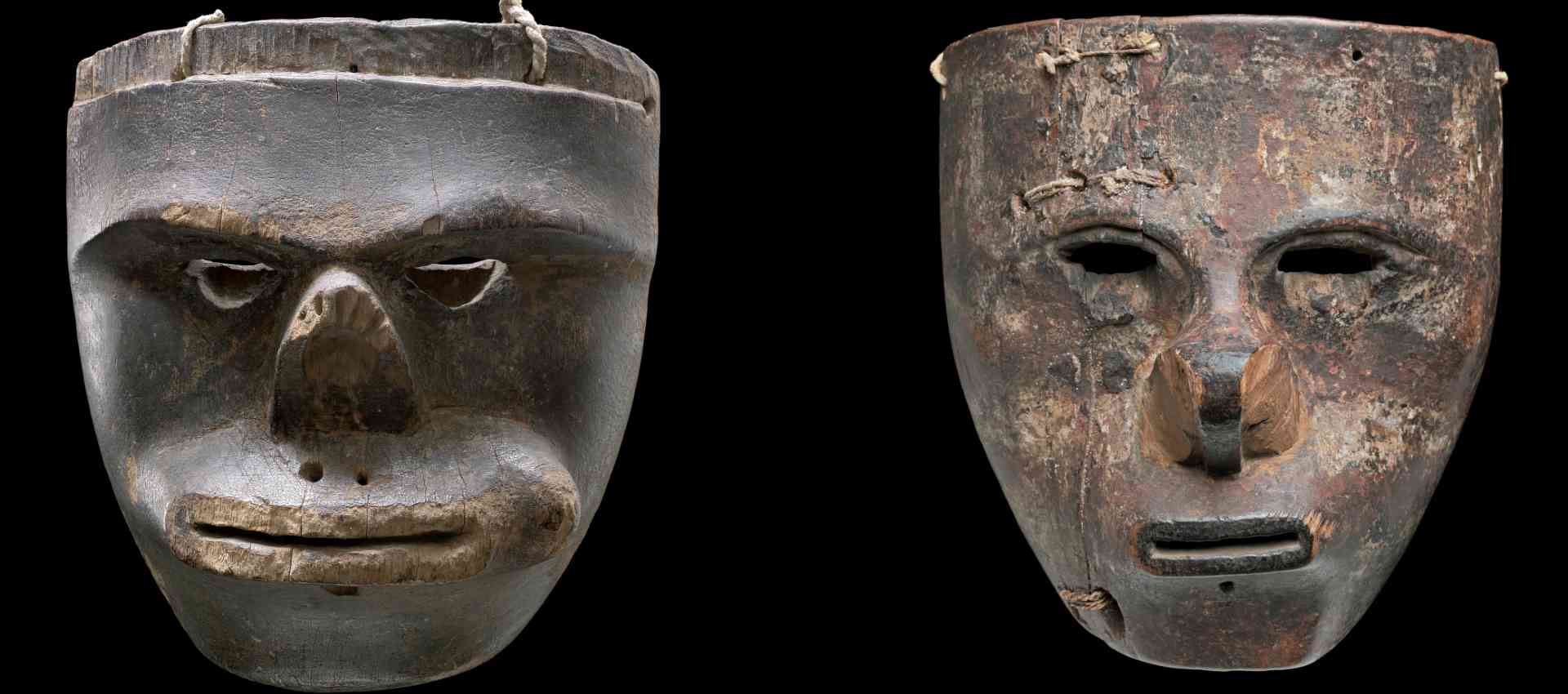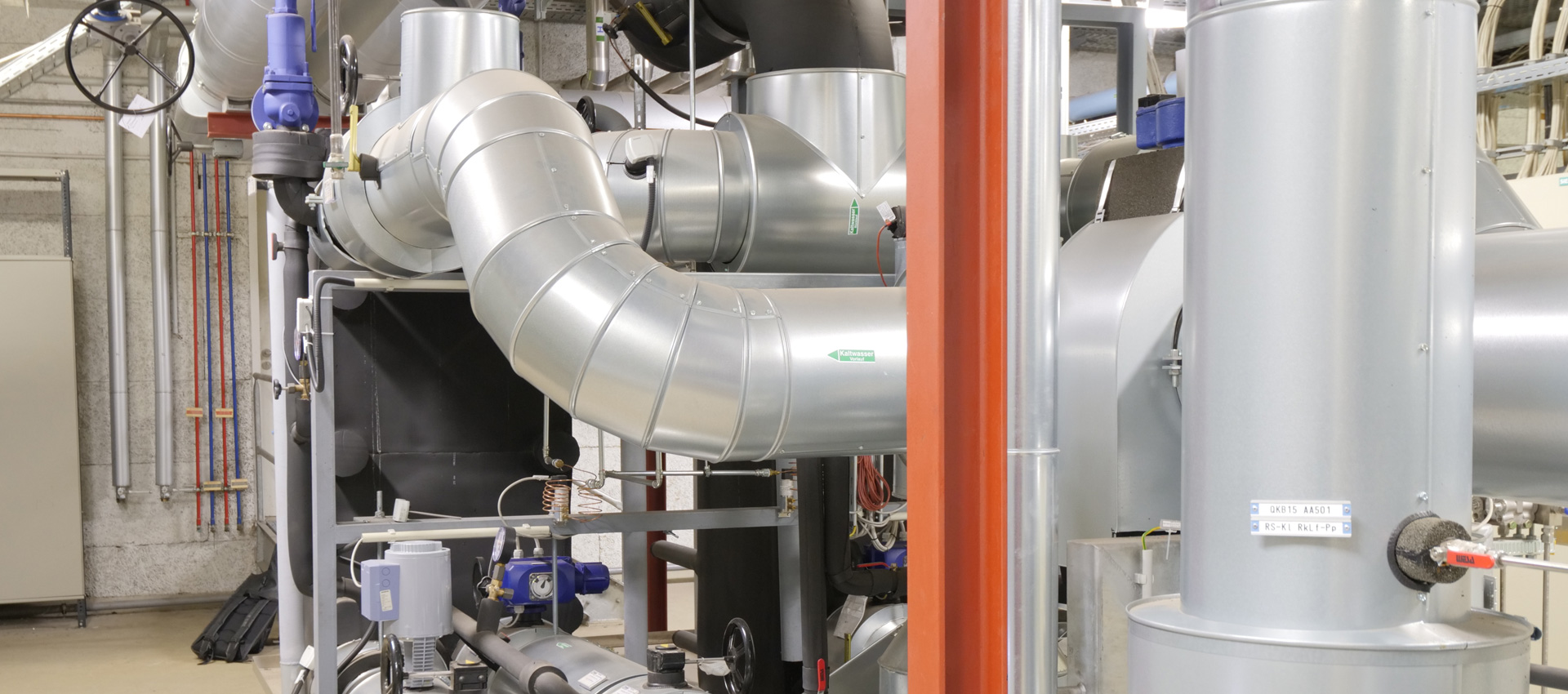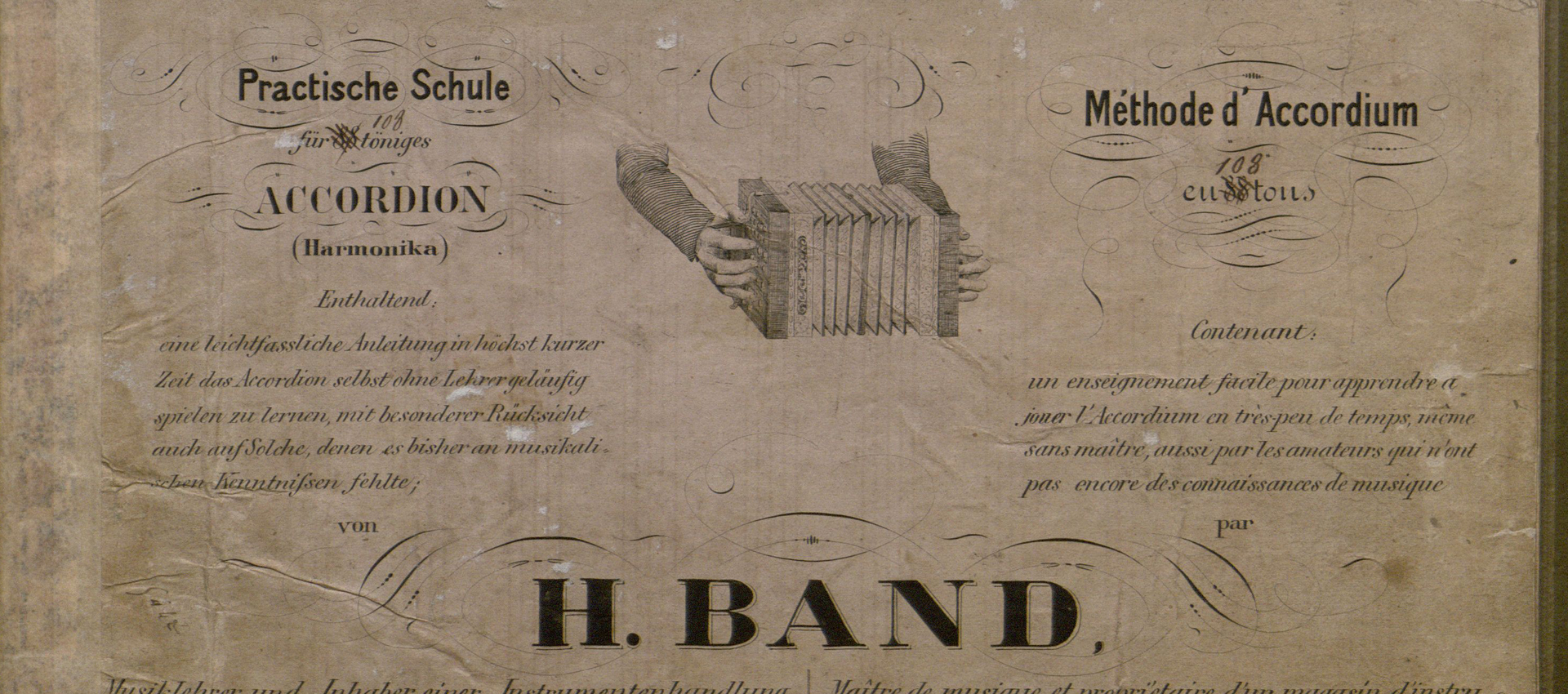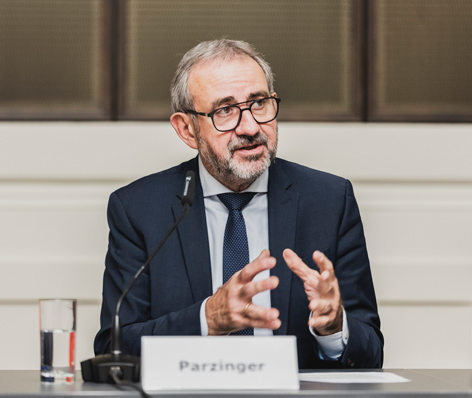In museum4punkt0, seven cultural institutions are experimenting with digital technologies. The goal: to be able to experience a museum in a new way. Introducing the museum4punkt0 subprojects…
An ambitious new digital project was started in 2017: museum4punkt0. Seven cultural institutions from all over Germany are collaborating to develop digital programs for new forms of education, participation, and communication in museums. The unique aspect: from concept development to implementation and the publication of their new digital formats, the participating museums are in constant contact. They advise each other on the selection of technology, mediation and testing methods, and on digitization standards for cultural objects, for example. Their collaboration is intended to produce concepts as well as the first prototypes. museum4punkt0 is testing new digital formats that visitors can use to design their own museum visit or bring their own knowledge and experiences into a museum’s exhibits and online programs.
The German Emigration Center in Bremerhaven – Experience the History of Migration Live
Based on the experimental exhibit “Kriegsgefangen. Ohnmacht. Sehnsucht.” (Prisoner of War. Powerlessness. Longing.) (August–November 2018), the German Emigration Center in Bremerhaven tested to find out how the historical and emotional aspects of migration can be communicated digitally. In two settings – one with originals and one completely digital – it studied the emotional reactions of visitors and what they learn from each type of staging. At the same time, the museum tested different kinds of formats that people can use in the museum and on the museum website to participate in debates about migration issues. In the future it will also be possible to share personal family histories with the museum.
Museen der Schwäbisch-Alemannischen Fastnacht – Carnival Culture Goes Digital
The Narrenschopf Museum in Bad Dürrheim and Fasnachtsmuseum Schloss Langenstein also want to communicate the emotional aspects of immaterial culture. In the previous carnival season, numerous 360-degree films were made that place viewers right in the middle of the celebratory customs. In a virtual carnival museum, “fools” (participants in costumes) and “laypeople” (observers) can share their personal carnival experiences and take part in year-round events online.
In Fasnachtsmuseum Schloss Langenstein, the questions were how sounds, movement, and activities can communicate carnival in a parcours, and how the visitors’ individual interests and knowledge level can be taken into account. A digital guide integrated into museum rooms is being tested as a possible answer. It reacts to visitor input and interaction patterns, offers directions, and points out as yet unknown facets of this cultural heritage.
Stiftung Humboldt Forum im Berliner Schloss – Humboldt’s Cosmos in Digital Space
Visitors can actively design what the museum “knows:” Stiftung Humboldt Forum im Berliner Schloss is developing “kosmosdigital Humboldt Forum,” a storytelling toolkit that allows various age groups to integrate their stories into exhibit objects. And the mobile app MeinObjekt is being developed in cooperation with Humboldt University in Berlin. The tool allows users to playfully find their personal favorite object and go on a voyage of discovery through the museum that takes their personal interests into account.
Staatliche Museen zu Berlin – Visitor Journeys Revisited: Expanding the Museum Visit Digitally
After months of intensive visitor and user research, the Staatliche Museen zu Berlin are developing services that can digitally augment a museum experience before, during, and after the visit. The museums are experimenting with the creative use of augmented reality – for example, making hidden layers of a painting visible, clarifying geographic and social contexts of objects, and designing guided tours interactively.
Deutsches Museum – 3D-Visualization: Perspectives in Museum Education and Mediation
By focusing on 3D-digitization and visualization, the Deutsche Museum München is making milestones of technology come alive. In the VRlab in Munich, visitors have been able to operate reconstructions of the Lunar Rover, the Sulzer steam engine, or the Benz motor car themselves since August 2018 and in this way easily learn about their functions. To make this possible, the historic originals were digitized in 3D beforehand.
Senckenberg Museum für Naturkunde Görlitz – Explaining, Understanding, and Experiencing Research in Museums
A museum heavily involved in researching the natural sciences, Senckenberg Museum für Naturkunde in Görlitz has developed digital formats that make scientific facts come alive. It uses a virtual reality animation to provide insight to the rich life on the forest floor. Virtually reduced to the size of an insect, viewers can explore the ground and get to know other forms of life up close in a way that isn’t possible otherwise. Interactive tools are also being developed that allow all interested parties to get involved in research. Apps allow amateurs to identify forms of life on the ground and add information on their finds into the body of research data.
museum4punkt0 – Digital Instruments for Education, Mediation, Communication and Research in Museums
Seven cultural institutions from all over Germany are collaborating to develop digital programs for new forms of education, participation, and communication in museums. From concept development to implementation and the publication of their new digital formats, the participating museums are in constant contact. The products of their collaboration are concepts and first prototypes. museum4punkt0 is testing new digital formats that visitors can use to design their own museum visit or bring their own knowledge and experiences into a museum’s exhibits and online programs. museum4punkt0 has been running since 2017 as a three-year project and is being funded by the German Federal Government Commissioner of Culture and Media with a total of €15 million. SPK is in charge of the scientific project management.
